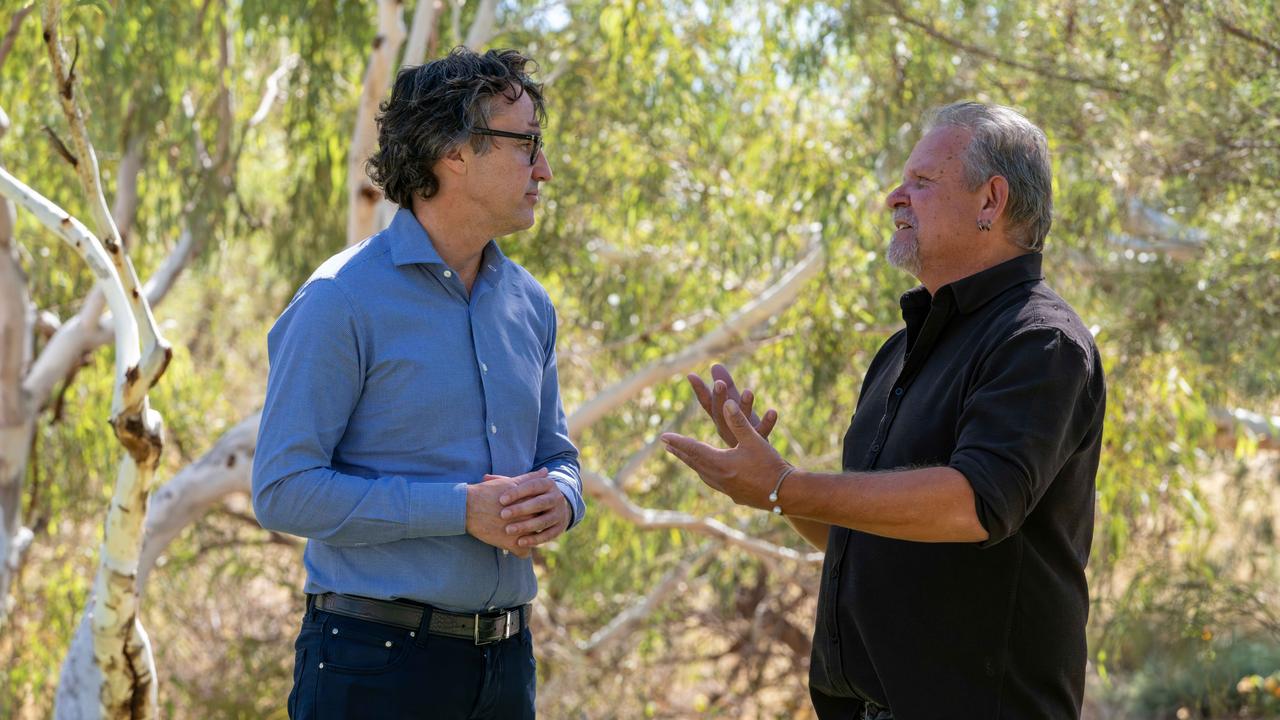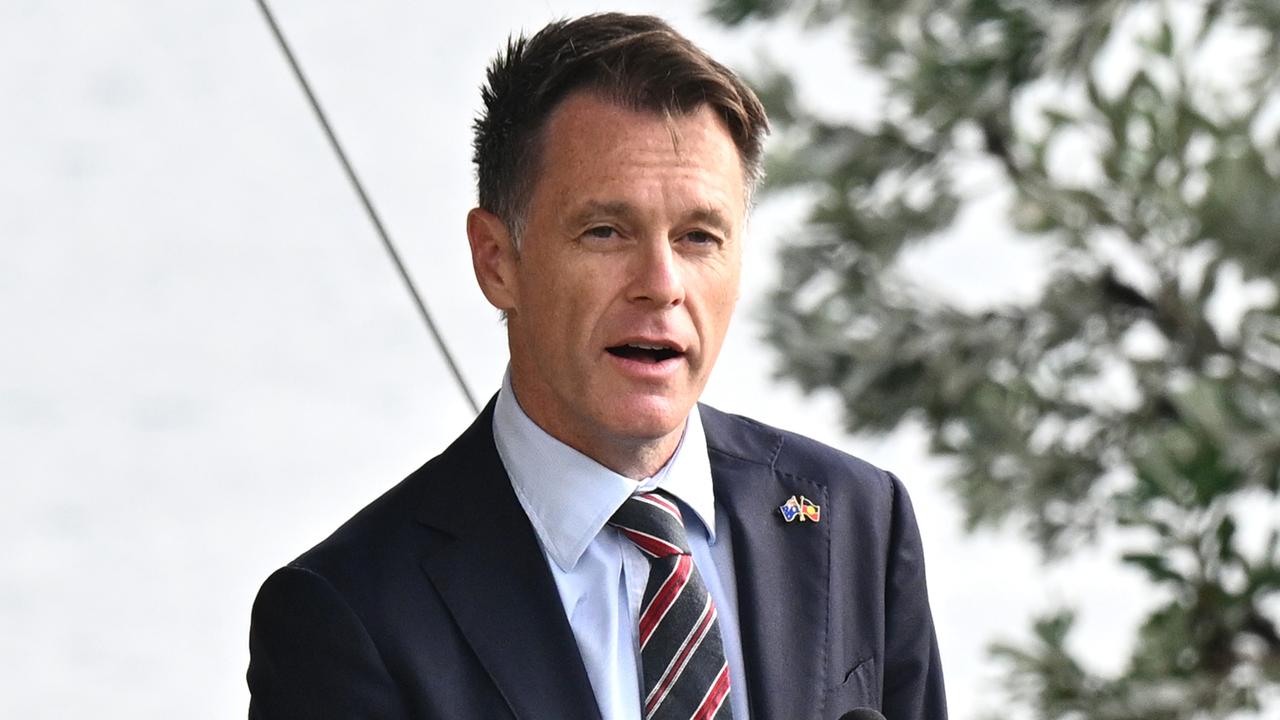‘Enough’s enough’: Indigenous family vent fury at police role in young man’s death
Northern Territory’s acting police commissioner has rejected calls from the family of an Indigenous man who died during an arrest in Alice Springs for an independent investigation into his death.
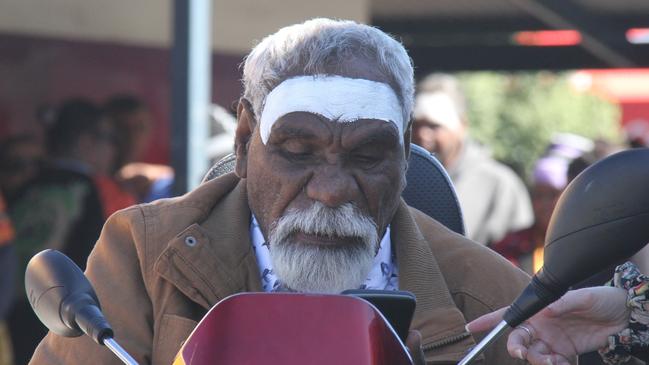
Northern Territory police have rejected calls from the family of an Indigenous man who died in Alice Springs while being arrested earlier this week for an independent investigation into his death.
The man’s family said they were “outraged” by the conduct of the current investigation and have criticised police for “putting out stories that portray (him) as a criminal”.
Their anger comes as the National Justice Project legal service was appointed to act for them in the case of their relative, who died during a botched arrest on Tuesday after he allegedly assaulted a security guard who spotted him stealing food at a major supermarket in Alice Springs.
Sources said the man was understood to be under Northern Territory guardianship and believed to have “a significant mental health background and development issues”.
One person who claimed to have witnessed the arrest said they saw a police officer with his knee on the man’s neck.
The death occurred exactly two weeks before the handing down of the findings of the coronial inquest into the death of Kumanjayi Walker, the Yuendumu man shot dead after attacking constable Zachary Rolfe with scissors during a botched arrest in 2019.
On Friday afternoon, family and supporters of the Indigenous man gathered at a vigil, where his grandfather, Warlpiri elder Ned Jampijinpa Hargraves, declared “enough is enough”.
“If you understand this country, you will respect it and you will learn to respect the land and the people that are living,” Mr Hargraves said.
“We’re going to put an end to this one, we’re going to put an end to it, enough is enough.”
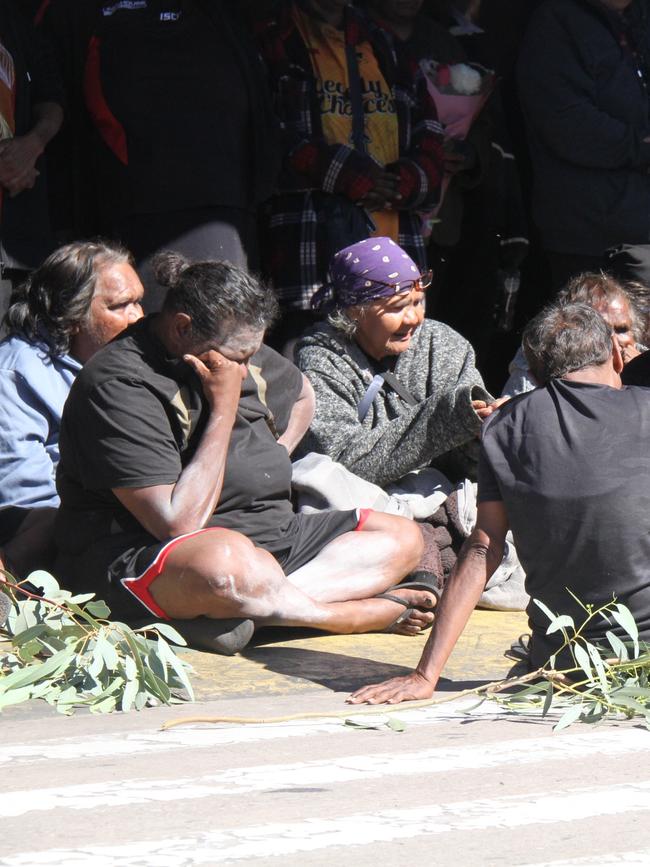
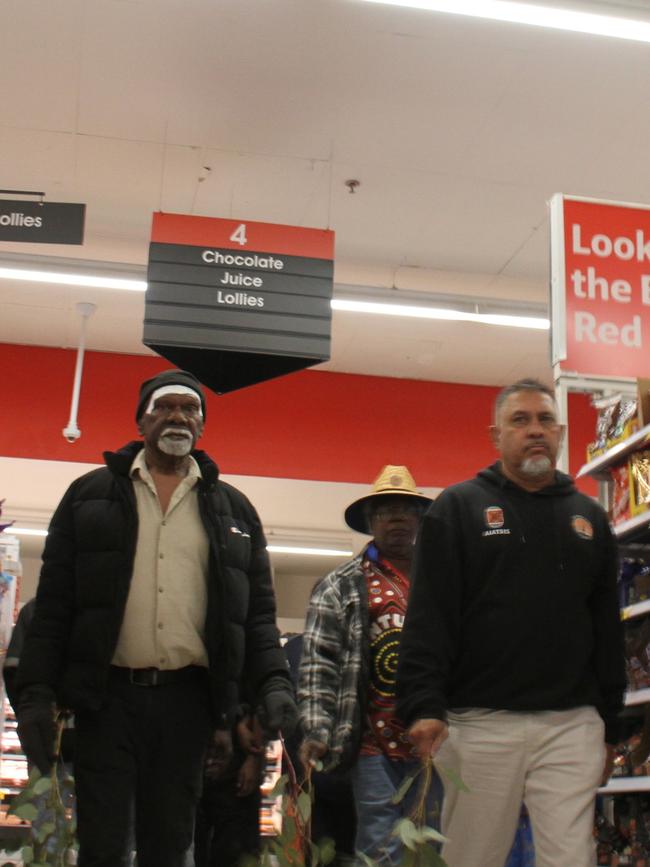
Earlier, he had said his family and community were “in the dark about what happened”.
“I am angry and frustrated that yet another one of our young men has lost his life at the hands of the police,” he said.
“We know that he was held down by two police until he lost consciousness and perished. But at the moment we are in the dark about what really happened.”
Mr Hargraves criticised the police for “putting out stories that portray my jaja (grandson) as a criminal”.
“This young man was living away from his community, in town, in supported accommodation because of his disabilities, and he was very vulnerable. He needed support and not to be criminalised because of his disability,” Mr Hargraves said.
The National Justice Project’s decision to intervene in the case puts the Northern Territory government on notice that its lawyers are looking to hone in on police practices in the Top End.
The project’s lawyers have become experts on what is sometimes termed “prone position asphyxia”, in which a police officer puts weight on the back, stomach or torso of a suspect. In recent years the legal service has represented the families of three Aboriginal Australians who died after being held in the “prone restraint”.
In Western Australia, use of the prone restraint is strictly limited – and police are no longer allowed to hold suspects in that position once handcuffed – after the National Justice Project helped prove this contributed to the 2019 death of Aboriginal woman Cherdeena Wynne, a vulnerable woman with mental illness.
In a letter obtained by The Australian sent to acting NT police commissioner Martin Dole, principal solicitor George Newhouse said the family were requesting that NT police stop making public statements that “speculate on the cause of death or denigrate the character of the deceased”, that they retract any such statements made, appoint an independent body to undertake an internal investigation, and that the family be granted access to all CCTV and body-worn camera footage.
Mr Dole said he “respectfully” rejected calls for the investigation to be handed to an external body.
“This incident is being investigated by our Major Crime Division, which operates under strict protocols and with full transparency,” he said.
“The investigation will also be independently reviewed by the NT Coroner, who has broad powers to examine all aspects of the incident and make findings without interference.
“We ask the community to allow the investigation to take its course. We are committed to a full and fair examination of the facts.”



